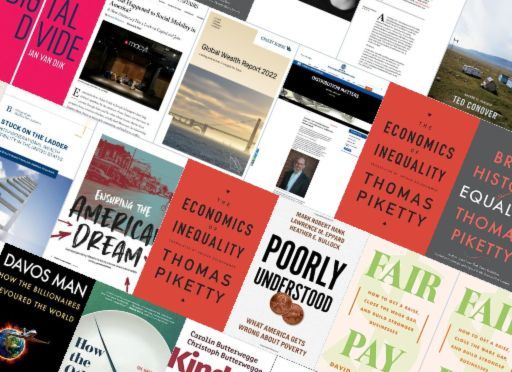Professor Michael J. Sandel describes the problems and dangerous fallout of America’s obsession with status and success.

Class Disparity
Professor of government theory at Harvard University Law School Michael J. Sandel – an exemplar of meritocratic achievement – provides an apt and cutting critique of the US merit-based system. His cogent text pinpoints the root cause of America’s current pronounced divisions, and his reflections on meritocracy’s impacts on globalization, class resentment and education prove fascinating and potent.
Demonstrating the strength of Sandel’s insights and the high regard critics have for them, The Times Literary Supplement named his critique Book of the Year for 2020; The New Statesman chose it as a Best Book of 2020, as did Bloomberg. The Guardian honored it as Best Book About Ideas of 2020. “In lucid, illuminating prose,” said Darren Walker, president of the Ford Foundation, “Sandel makes a compelling case for uprooting inequality and building a fairer society shaped by true principles of justice. A seminal work.”
Myth
Sandel begins by noting that Americans think that equality of opportunity – which enables people to rise through hard work and talent – lessens economic inequality. However, he cites studies showing this narrative is a myth.
Sandel explains that while Americans believe more strongly in upward social mobility than Europeans do, rates of social mobility are lower in the United States than in Europe.
Social Merit
Sandel details how, in a free market economy, globalization and outsourcing have driven the earnings gap between winners and losers ever wider.
A perfect meritocracy banishes all sense of gift or grace. It diminishes our capacity to see ourselves as sharing a common fate. It leaves little room for the solidarity that can arise when we reflect on the contingency of our talents and fortunes.Michael J. Sandel
Market realities, he laments, become the arbiter of merit, as tangible market values overwhelm the idea of the common good.
Even left-leaning political parties, Sandel finds, believe the impacts of globalization and technology on working people’s earning power are just an unalterable fact of today’s reality. Some politicians fight for better access to educational and career opportunities for women, minorities and the poor, but, Sandel observes, they offer no hope of improvement for low-earning workers. Barack Obama and Hillary Clinton made meritocracy and social mobility central to their campaigns, but Donald Trump and Bernie Sanders hardly mentioned either.
Meritocratic Ideals
Sandel argues that mainstream economists and Wall Streeters believe more trade means more specialization and greater national consumption; that outsourcing is a natural progression in a shrinking world; and that immigration ensures a larger workforce for companies.
Those who rise to the top in the meritocratic race, including politicians, Sandel cautions, mix mainly with each other and share a common mind-set. He’s frankly disappointed that the Obama administration – with its post–2008 bailouts – was too comfortable with and susceptible to the Wall Street meritocracy.
A Sorting Machine
A culture that emphasizes equality of opportunity prioritizes education, Sandel says. But he presents the tragic fact that as elite universities accept ever-fewer applicants, they become more desirable destinations and thus more emblematic of merit. He posits that this education sorting machine merely perpetuates the advantages of the elite and well-off. Sandel offers as examples of this that Princeton and Yale have more students from the top 1% of the income scale than from the bottom 60%.
Those who prevail on the battlefield of merit emerge triumphant but wounded. I see this in my students. The habit of hoop-jumping is hard to break. Many still feel so driven to strive that they find it difficult to use their college years as a time to think, explore and critically reflect on who they are.Michael J. Sandel
Sandel’s solution is for top universities to set a reasonable bar for admissions but to make their final student selections via lottery.
The Bottom
If you’re at the bottom of US society, Sandel asserts, being told the alternative to poverty is educational achievement means little if you, like much of the population, lack academic gifts. Politicians tell the poor to pull themselves up through education or achievement, but that, Sandel says, perpetuates the view that anyone needing help from government is a charity-seeking victim. This ensures, the author points out, profound humiliation for anyone seeking assistance, which only fuels the decreasing connection between American haves and have-nots.
Sandel relates that, for the first time in US history, life expectancy among noncollege-educated groups is declining. He makes the case that those whose financial and social esteem declines turn to substance abuse and suffer “deaths of despair.”
Market-driven globalization and the meritocratic conception of success, taken together, have unraveled these moral ties…We are now in the midst of the angry whirlwind this unraveling has produced. To renew the dignity of work, we must repair the social bonds the age of merit has undone.Michael J. Sandel
Sandel’s proposition is that a civic-minded common good recognizes the social esteem that comes from contributing to a community. In a healthy society, he thinks, those who do not rise to high-paying jobs should flourish by contributing to common projects and leading lives of dignity and respect.
Disparity
Sandel’s arguments reflect much common sense and a liberal sense of outrage at the damage vast wealth disparity has wrought – and still wreaks – on American society. He describes today’s problems with detailed insight and no small amount of anger. Sandel fears that unless significant change reshapes Americans’ obsession with status and success, a permanent class divide will roil the United States, with grave consequences.
More conservative or purely market-driven readers – or members of the self-styled meritocracy whom Sandel describes – may take issue with pretty much every one of his arguments. That does not, however, make this an inflammatory book; it merely comments on the very lack of common ground Sandel so regrets.
If Michael J. Sandel’s outlook speaks to you, you might find further insights in his Democracy’s Discontent, What Money Can’t Buy, and Liberalism and the Limits of Justice. Other thoughtful works by authors pursuing similar ideas include The Meritocracy Trap by Daniel Markovits and The Tyranny of the Meritocracy by Lani Guinier.








